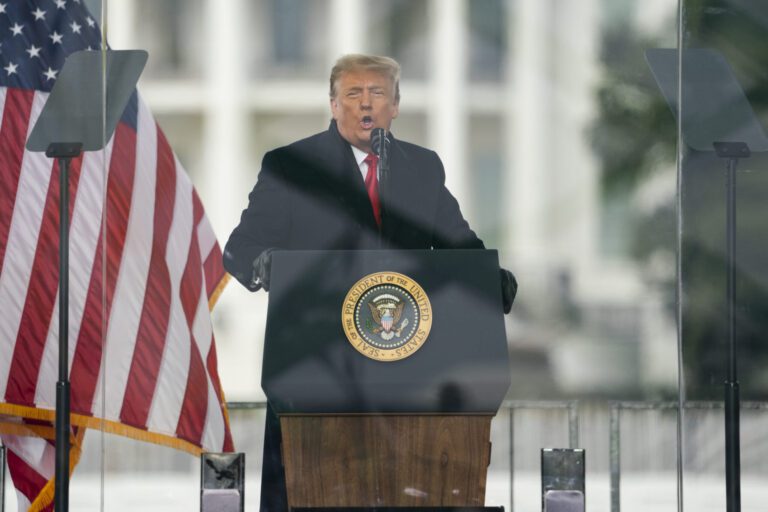BBC Defies President Trump’s $5 Billion Defamation Lawsuit Threat
The British Broadcasting Corporation (BBC) is standing firm against President Donald Trump’s announcement of a potential $5 billion defamation lawsuit. The dispute arises from the way the BBC edited a segment of Trump’s speech from January 6, 2021, implying he incited violence among his supporters while omitting his call for a peaceful demonstration.
Understanding the Controversy
- The Edited Speech: In the contentious episode of the BBC’s “Panorama”, Trump stated, “We’re going to walk down to the Capitol… and I’ll be there with you. And we fight. We fight like hell.” However, the broadcast excluded his earlier message urging supporters to “peacefully and patriotically make your voices heard.”
- Legal Standpoint: Trump claims that this editing misrepresented his words, warranting a multi-billion-dollar lawsuit. Nevertheless, the BBC maintains that it did not act with actual malice, a crucial criterion in defamation cases.
BBC’s Response
Despite Trump’s threats, the BBC has expressed no intention of compensating the former president. On Monday, the BBC Chairman Samir Shah reaffirmed their position:
“There is no basis for a defamation case, and we are determined to fight this.”
Apology Issued
The BBC did apologize for the editing choice and stated that the episode would not be broadcast again. This acknowledgment, however, does not alter their stance against Trump’s lawsuit.
Legal Implications
Trump is expected to file the lawsuit in Florida, a state where media companies historically face challenges. Recent legal precedents—including a Florida jury finding CNN liable for defamation—highlight the potential risks involved for media entities.
Key Points for Trump’s Case
For Trump to succeed, he would need to prove:
- The BBC’s editing was done with actual malice—that is, the BBC knew the broadcast was false and aired it anyway.
Challenges Ahead
Katie Razzall, a media editor for the BBC, indicated:
“It will be hard for Mr. Trump to show we acted with malice since the episode did not air in America.”
Razzall also noted that Trump’s recent electoral victory undermines his claim of damage from the broadcast.
Costs and Consequences
While the BBC expresses its determination to combat the lawsuit, the potential for a lengthy and expensive legal battle raises questions about the network’s capacity to follow through, particularly as it negotiates its charter.
Conclusion
As President Trump prepares to take legal action, the BBC remains resolute in its defense. This unfolding saga highlights the complexities of media representation and the ramifications of defamation claims in an era of rapidly evolving news dynamics.
For further insights into media law, visit FindLaw or explore NPR’s coverage on this developing story.


